In late March, while some ministers were scrambling to figure out how to host worship services, council meetings and other events online, Rev. Paul Mullen was sick with COVID-19.
“I couldn’t really move without it hurting,” he says.
“It was awful, but compared to what a lot of others have gone through with [COVID-19] and are still going through with it, I think of it as being lucky that I had a mild case.”
He is one of 24 people who were infected after the church he serves, Living Spirit United in Calgary, held a birthday party on March 15. Two members died.
The church had to quickly pivot to try to help congregants mourn. Part of weekly Zoom worship was dedicated to sharing updates on those who were sick. After one member died, the church held a virtual wake. And after the second death, they held “drive-through” candlelight vigils for both families.
While the current stage of Alberta’s reopening plan allows religious organizations to restart some activities with restrictions, Living Spirit is talking about September for in-person services at the earliest, says Mullen.

“I think people are pretty gun-shy in a sense because of the two deaths we’ve had and some people have gotten quite sick,” he says.
“They’re saying this isn’t something to rush back into.”
As much of Canada emerges from the first wave of the COVID-19 pandemic, some provinces and territories are now beginning to allow public gatherings, and people of faith are naturally curious about when they can go to church again. But though ministers are weary of Zoom worship and congregants ache to greet one another in person, United churches across the country are hesitant to throw open their doors just yet.
Last week, The United Church of Canada released a set of optional guidelines for communities of faith and their governing regional councils to follow in reopening. In similar framing to many provinces’ plans, the guidelines include three phases. The first phase would mean small groups like church boards could meet in person, but congregational worship would continue to be held online, save for potential outdoor services with social distancing and masks. Phase 2 would permit socially distanced in-building worship with instrumental music and potential solo singing performances, and small funerals, weddings and baptisms could be held. The final phase would allow the full return of events and services, abiding by local regulations.
In New Brunswick, religious services are currently allowed for gatherings of 10 or fewer, and the province’s next recovery phase would expand that to 50 people or fewer. But for at least one church, return to in-person worship will not happen until at least after Labour Day.
Rev. Lloyd Bruce, the minister at Sackville Pastoral Charge in Sackville, worries about not being ready for those who are more susceptible to COVID-19, such as seniors.
“We have a moral imperative to be responsive to the most vulnerable of our community, and so if I think about who is the most vulnerable member of our community that might want to come and be among us, I need to plan for that, and I need to be prepared to create a space that is safe and accessible to that individual,” he says.
He and other church leaders have also discussed the idea of continuing online services alongside in-person worship. Two or three people who live near one another could form “bubble groups” and worship together at home.
More on Broadview: 10 ways houses of worship handle social isolation
Sackville and Upper Sackville United churches, which form the pastoral charge, are small buildings, with sanctuaries that couldn’t safely welcome the 70 to 80 people who usually come to services.
“If we measure out in Sackville United Church what it looks like to keep chairs six feet apart, left to right, front to back, we could maybe fit 18 chairs in the gathering space,” Bruce says.
For a church with the property space and in a jurisdiction that allows it, an outdoor service is an appealing concept. Rev. Lori Megley-Best, the minister at Cloverdale and Hazelmere United churches in Surrey, B.C., is considering it for the summer months. The province currently allows gatherings of up to 50 people.
Cloverdale United has a large lawn, she says, and congregants could bring their own chairs and sit on their own blankets, maintaining a two-metre distance from one another.
“We are hoping that we’ll do some outdoor worship, start resuming that in the next couple of weeks, if we could even do it beginning for Pentecost Sunday [May 31] I’d be really excited about that,” she says.
She also likes the idea, which she has seen in the United States, of using car radios to broadcast the service while people watch the minister in front of a church building and listen from their vehicles.

Megley-Best says she thinks it’s important to find ways to reestablish connections in person during this time of reopening.
“Because I think that if we had to go with just Zoom for a year, people would start falling away. We’re not going to keep our relationships for going that long.”
In denser regions with higher case counts, in-person services won’t happen anytime soon. Rev. Elisabeth Jones is the minister at Cedar Park United in Pointe-Claire, Que., in the West Island area of Greater Montreal. As of Thursday, Montreal had seen 20,633 confirmed cases, nearly as many as all of Ontario, the second-worst affected province behind Quebec.
“We’re Canada’s epicentre right now for COVID,” Jones says.
Congregants are scared, angry and horrified by the overall situation, she says. No one in her congregation has died, but a number have lost family members. Three families in her congregation are related to residents of the Résidence Herron seniors’ home where bodies were found.
“People’s Sunday habits will have changed, their sense of security within the wider community has shifted, it’s not going to go back. There is no back to go to.”
“I think the fact that it’s persisting despite the fact that we think we’ve just done an awesome job of self-isolating and it seems to be having no effect is upping the sense of fear that this thing is more insidious than we originally thought,” she says.
“We’ve been trying to use Zoom a lot to connect with different groups in the church. I will often go and just sit in those Zooms just to listen, and I’m hearing people say, ‘I don’t think I would go back to church even if it were open. I’d be too scared.’”
But she also suspects that there will be pressure from some who are eager to get back to normal once governments start easing restrictions.
“I’m quite concerned about what it’s going to look like as we move forward. People’s Sunday habits will have changed, their sense of security within the wider community has shifted. It’s not going to go back. There is no back to go to.”
No one wants to rush back at Living Spirit United either, says Mullen, partly because of March’s tragedy. But he also says that the congregation may be more prepared for new ways of being church because it has been in talks with another congregation about partnering together as Living Spirit’s membership declines.
“I don’t think they’re as attached to particular ways of doing worship,” he says.
“That whole process has enabled the congregation to be ready for almost anything that comes along.”
CORRECTION: A previous version of this piece stated that Pointe-Claire was considered part of Montreal’s South Shore. This version has been corrected.
Broadview is an award-winning progressive Christian magazine, featuring stories about spirituality, justice and ethical living. For more of our content, subscribe to the magazine today.

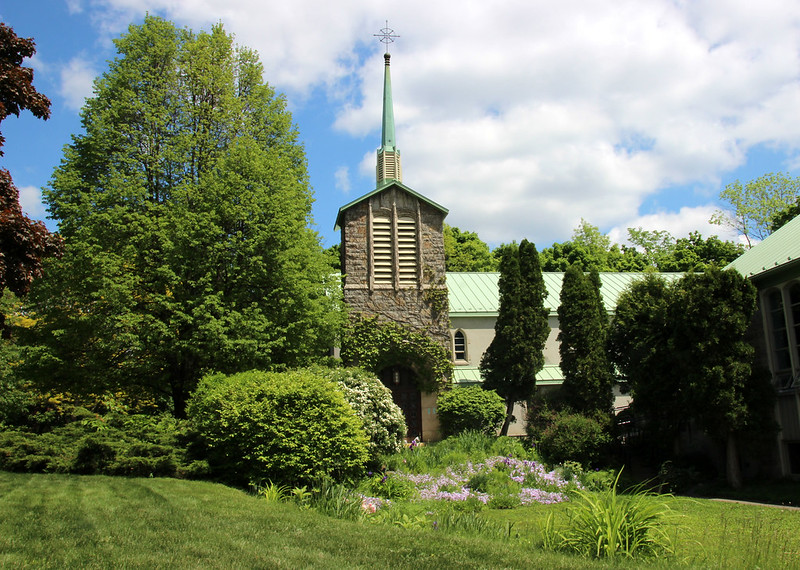








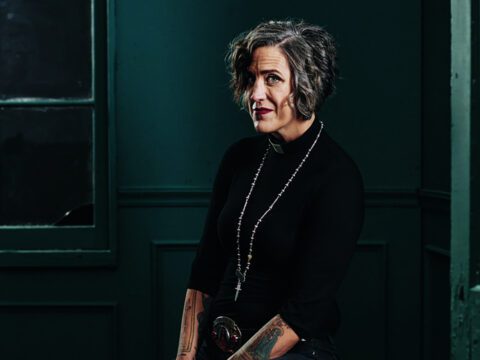
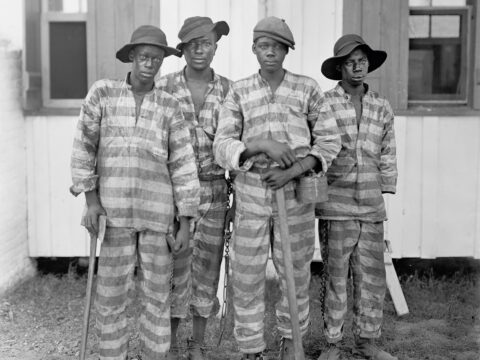
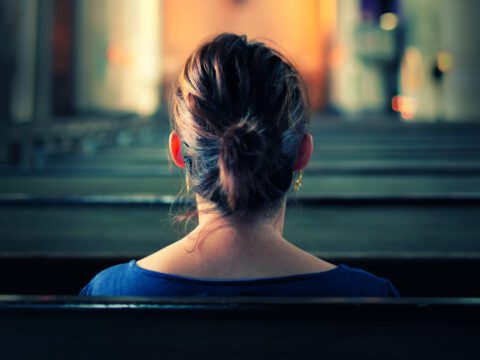
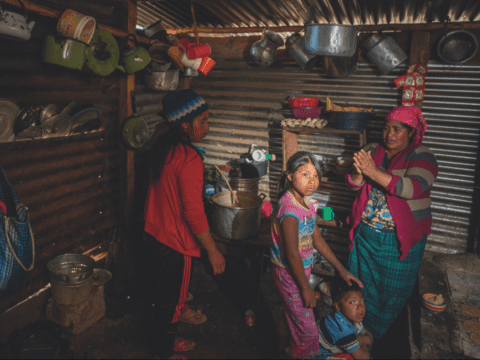


I’m a donor and subscriber
I would like updates like this one
Thank you
I am convinced that it’s best to make the safe choice and not reopen prematurely. Yet at the same time I agree with the Rev. Lori Megley best who says that churches should try to reconnect in person.
Seniors are the hardest hit in this pandemic, not only seniors in nursing homes, but everyday seniors who are home alone. Early in the pandemic I received a lot of emails and a few phone calls, with positive messages that boosted my spirits, but they have fallen away. People are getting worn out. One hesitates to keep in touch for fear of bothering people who have their own problems.
Seniors, the loneliest segment of the population and the most vulnerable, are also the segment least likely to be familiar with Zoom. Also, some people are also getting fed up with a Hollywood Squares way of connecting with others.
Sometimes the smallest thing can rekindle hope in one’s heart, like a homemade sign on a fence expressing support for front line workers. A United Church in our area has a notice board outside, but the latest notices posted are for church events that never happened because of the lockdown. How hard would it be for someone to go out there and put up a message of encouragement?
People have lost faith and trust in the leadership of the United Church of Canada all across the country. The General Secretary has stated that the covid 19 pandemic has been a “gift”. Being from a city housing the tragic deaths of souls from Roberta Place, I am deeply disturbed by our leadership making such profane statements. The messages from our pulpits via zoom should be about God’s love, the hope Jesus gave us, steadfast faith, courage in the face of adversity, but we get fear, indocrination, vengeful signs on our church property saying Black Lives Matter and Indigenous Lives Matter, totally disregarding all the lives before and since that have put their blood, sweat and tears into building the body of the christian church, physically and emotionally. The leaders now are rastafarians and others who desecrate the name of Jesus Christ and salvation.and call it interculturalism or anti-racism. The churches need to do their housekeeping with their christian messages and their leaders if they expect christian people to walk through the front door of God’s sanctuary in September.